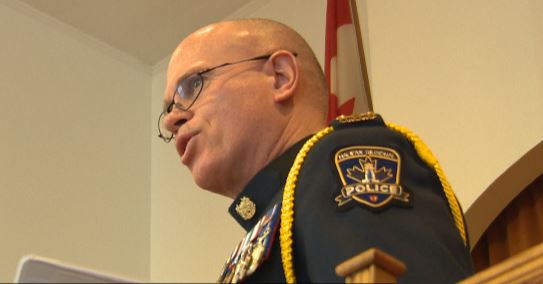The choir at Cornwallis Street Baptist Church had a few extra voices during their service on Sunday morning, including Halifax Regional Police, Chief Jean-Michel Blais.

“I mean I love it, I think it just takes the worship off the chain really,” said Rhonda Britton, the church pastor.
The chief of police was flanked by other HRP and RCMP officers to recognize the International Day for the Elimination of Racial Discrimination.
“The Elimination of Racial Discrimination Day is an international day and it’s a very important time for all police services across the world to recognize that we have to treat people equally and fairly,” Blais said.
The International Day for the Elimination of Racial Discrimination falls on March 21 every year that honors the memory of those who were killed by police open fire on March 21, 1960 in Sharpeville, South Africa.
Sixty-nine lives were lost during a peaceful demonstration working to eliminate racial discrimination in the area.
Halifax police have been joining the Cornwallis Street Baptist Church for more than 10 years for the special service.
Something that Pastor Britton says represents a positive change between the police force and the community.
“We have people in the community that feel like law enforcement has not always been on their side. So for people who have felt victimized, it’s important for them to understand that police and community should work together in order to have the kind of community that we would like to have,” Britton said.
Blais says it’s important for his members to understand how they can best serve the community.
“Well first off, the recognition that we’re not warriors but we’re guardians and that we’re here to protect and to help people. Secondly, it’s to be able to go out and talk to people and get to know what their experiences are as oppose to assuming that we know what their experiences are,” said Blais.




Comments